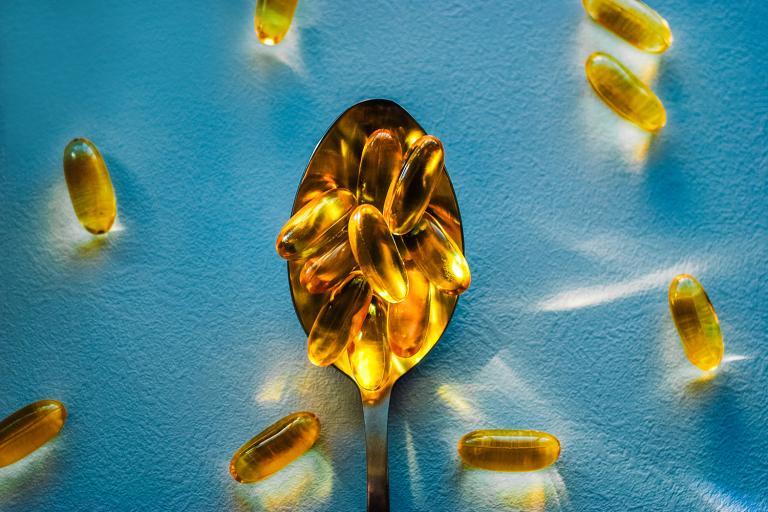If you’ve ever slammed your fingers in a door or had an earache, you know the pain and heat of inflammation. In response to acute infection or injury, inflammation is one of the body’s self-protective mechanisms. Blood flows to the inflamed area, causing heat and redness while helping the body to remove dangerous substances.
When Inflammation Becomes Chronic
Sometimes, though, this kind of inflammation gets out of control, and the immune system becomes overwhelmed. Because chronic inflammation can linger for years—sometimes a lifetime—it can result in degenerative diseases.
The overwhelming amount of toxins in our environment today, as well as food allergies and dietary trends that favor proinflammatory fats over anti-inflammatory oils, puts us all at greater risk for chronic inflammation—a major contributor to fatigue, obesity, and unrelenting pain.
If you’re in pain or suspect chronic inflammation, consider a simple blood test for systemic inflammation that measures C-reactive protein (CRP). Levels above 0.20 mg/dL require action to quench inflammation.
Two major investigations (the Physician’s Health Study and the Women’s Health Study) show that people with the highest CRP levels have three times the risk for heart attack and twice the risk for stroke than those with normal CRP levels.
Unfortunately, chronic inflammation can also occur without acute symptoms.
Omegas to the Rescue!
Omega-3 fatty acids support the immune system. “Those from fish oil—eicosapentaenoic acid (EPA) and docosahexaenoic acid (DHA)—are the most biologically potent,” finds Nancy Appleton, PhD, author of Stopping Inflammation: Relieving the Cause of Degenerative Diseases. “Once you have found and stopped the cause of inflammation, omega-3 fatty acids can be beneficial in the healing process.”
Dosage recommendations vary, according to inflammation levels and overall health. The World Health Organization recommends 300 to 500 milligrams (mg) of omega 3s daily for healthy individuals. The National Institutes of Health suggests 650 mg daily, while the American Heart Association advises 650 to 1,000 mg per day.
To determine what’s best for you, talk with your healthcare provider or have your blood levels of essential fats measured by a lab. (Most insurance companies won’t pay for this test, however).
Placebo-controlled trials of omega 3s also show significantly reduced disease activity and a lower use of anti-inflammatory drugs. Inflammatory conditions ranging from aging and arthritis to cancer, coronary heart disease, Crohn’s, lupus, and ulcerative colitis involve an increased level of interleukin, a pro-inflammatory substance.
Other Anti-Inflammatory Support
Besides avoiding pro-inflammatory fats (trans fat and most supermarket oils, particularly canola, corn, soy, safflower, and sunflower), limit advanced glycation end products (AGEs) in sugar and highly processed foods. Eating raw foods helps, and consuming a Mediterranean diet rich in extra-virgin olive oil, fish, nuts, and brightly colored veggies is a healthful choice.
Besides an anti-inflammatory diet, antioxidant vitamin C helps reduce inflammation and free-radical damage that contributes to inflammatory conditions. B-complex vitamins (with extra B12) are useful for tissue repair. Proteolytic enzymes (taken between meals as directed) also help control inflammatory conditions. Bromelain, in particular, appears to increase the breakdown of fibrin, which forms around inflammed tissue and blocks healing blood and lymph flow to the area. MSM supports tissue healing.
Numerous herbs offer anti-inflammatory benefits. Cell research at UC Berkeley finds curcumin (a substance in the spice turmeric) has potent anti-inflammatory, antioxidant, and anticancer properties. And German research finds that curcumin combined with resveratrol reduces inflammation more than when using these supplements alone.
Shea tree extract has been shown to ease discomfort in placebo-controlled studies, making it an appealing option. Specific areas of improvement associated with this extract include “relief of pain, reduction of inflammation, bone tissue management, and retention of cartilage,” says Phillip Cheras, PhD, lead author of a study published in Phytotherapy Research. In Dr. Cheras’ randomized, double-blind trial, 89 people with osteoarthritis of the knees and/or hips took 2,250 mg of a proprietary high triterpene shea nut extract daily. After 15 weeks, the research team saw significant reductions in inflammatory markers. They noted no side effects or contraindications.
Other herbs to consider include aloe vera juice, bilberry, boswellia, cat’s claw, cayenne, ginger, holy basil, pau d’arco, white willow bark, and yucca for inflammation.
Holistic Pain Relief
Long-term pain is a sign that something is wrong—and that inflammation may be a problem. Drug-free pain management choices include homeopathy. Since inflammatory pain can be a highly personal condition, working with a qualified practitioner toward a constitutional treatment is best. Acupuncture is increasingly used for chronic back and neck pain, headache and migraine, and knee osteoarthritis, as it’s well tolerated with a low risk for adverse effects.
Aerobic exercise and muscle strengthening can be effective for rheumatoid arthritis. Also useful, depending upon the nature of the inflammatory condition: chiropractic and osteopathic manipulations, aromatherapy, biofeedback, castor oil packs, hypnosis, hydrotherapy, magnets, massage, physical therapy, qi gong, reflexology, t’ai chi, and yoga.
What Causes Chronic Inflammation?
A number of factors appear to cause inflammatory conditions. They include
- AGEs (advanced glycation end products) from excessive sugar and refined foods
- Chronic fatigue
- Environmental toxins
- Estrogen (synthetic hormone) therapy
- Free radicals involved in oxidative stress
- High blood pressure
- Hypersensitive reactions to substances and allergies
- Microbial infections from bacteria, fungi, parasites, and viruses
- Obesity
- Physical trauma
- Smoking and tobacco use
- Surgery (including dental implants/transplants)

